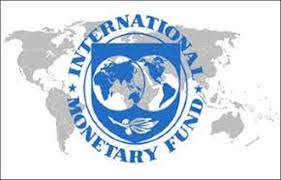
The biggest economic risk to the eurozone is posed by the ongoing tensions over international trade, claimed the managing director of the International Monetary Fund.
Christine Lagarde, managing director of the IMF told reporters in Luxembourg, that despite the fact that the euro area has undergone an economic growth that is "above potential" in 2017, "the momentum is slowing down a bit at the moment”. Lagarde added that in July, it the IMF will “modestly lower its economic forecast for the eurozone.
Partly because growth in the 19-member region would be supported by monetary policy, therefore, the economic slowdown is not expected to be "sharp" according to the Fund. However, a series of economic risks persists, according to Lagarde and the most important is trade tensions.
"First on the list of risks is clearly the series of trade tensions that has been initiated by the tariff increase on steel and aluminium," Lagarde said, referring to the policies taken by U.S. President Donald Trump and his administration.
Imposition of a 25 percent tariff on steel imports and another of 10 percent on aluminium imports into the US was announced by the Trump administration in March. and the European union and therefore the eurozone were subjected opt the tariffs after the initial temporary exemption from the tariffs.
In a tit for tat measure, products imported from the US such as orange juice, sweetcorn, peanut butter and blue jeans into the European Union is now subject to tariffs. Similar measures are being taken by two other large trade partners of the US – Mexico and Canada. India too has announced tariffs on some US imports this week.
Impact on confidence from the trade tensions is the problem, according to Lagarde, and it is not directly concerned with any of the macroeconomic situations and indicators as this is "in the range of 0.1 percent here, 0.1 percent there".
"It's the trend that's worrying and it's the breach in confidence that undermines relationship," she said.
Lagarde added that "retaliation, escalation, if that happens because then you're talking about higher macroeconomic impacts and, second, the undermining of confidence that has presided over the relationship of partners under the rules-based system."
At a time when there is an increase in the global oil prices which is impacting the current global economic environment, the problem of higher import duties on goods assumes an even greater proportion.
"My particular concern also addresses the poor countries that have had the benefit of improved growth over the last couple of years, where commodity prices are picking up again, where it's really phenomenally important for them, and even in countries whether they are advanced, or otherwise, it is always the poor people that suffer the most as a result of those barriers or trade tariffs," Lagarde told the media.
(Source:www.cnbc.com)
Christine Lagarde, managing director of the IMF told reporters in Luxembourg, that despite the fact that the euro area has undergone an economic growth that is "above potential" in 2017, "the momentum is slowing down a bit at the moment”. Lagarde added that in July, it the IMF will “modestly lower its economic forecast for the eurozone.
Partly because growth in the 19-member region would be supported by monetary policy, therefore, the economic slowdown is not expected to be "sharp" according to the Fund. However, a series of economic risks persists, according to Lagarde and the most important is trade tensions.
"First on the list of risks is clearly the series of trade tensions that has been initiated by the tariff increase on steel and aluminium," Lagarde said, referring to the policies taken by U.S. President Donald Trump and his administration.
Imposition of a 25 percent tariff on steel imports and another of 10 percent on aluminium imports into the US was announced by the Trump administration in March. and the European union and therefore the eurozone were subjected opt the tariffs after the initial temporary exemption from the tariffs.
In a tit for tat measure, products imported from the US such as orange juice, sweetcorn, peanut butter and blue jeans into the European Union is now subject to tariffs. Similar measures are being taken by two other large trade partners of the US – Mexico and Canada. India too has announced tariffs on some US imports this week.
Impact on confidence from the trade tensions is the problem, according to Lagarde, and it is not directly concerned with any of the macroeconomic situations and indicators as this is "in the range of 0.1 percent here, 0.1 percent there".
"It's the trend that's worrying and it's the breach in confidence that undermines relationship," she said.
Lagarde added that "retaliation, escalation, if that happens because then you're talking about higher macroeconomic impacts and, second, the undermining of confidence that has presided over the relationship of partners under the rules-based system."
At a time when there is an increase in the global oil prices which is impacting the current global economic environment, the problem of higher import duties on goods assumes an even greater proportion.
"My particular concern also addresses the poor countries that have had the benefit of improved growth over the last couple of years, where commodity prices are picking up again, where it's really phenomenally important for them, and even in countries whether they are advanced, or otherwise, it is always the poor people that suffer the most as a result of those barriers or trade tariffs," Lagarde told the media.
(Source:www.cnbc.com)





